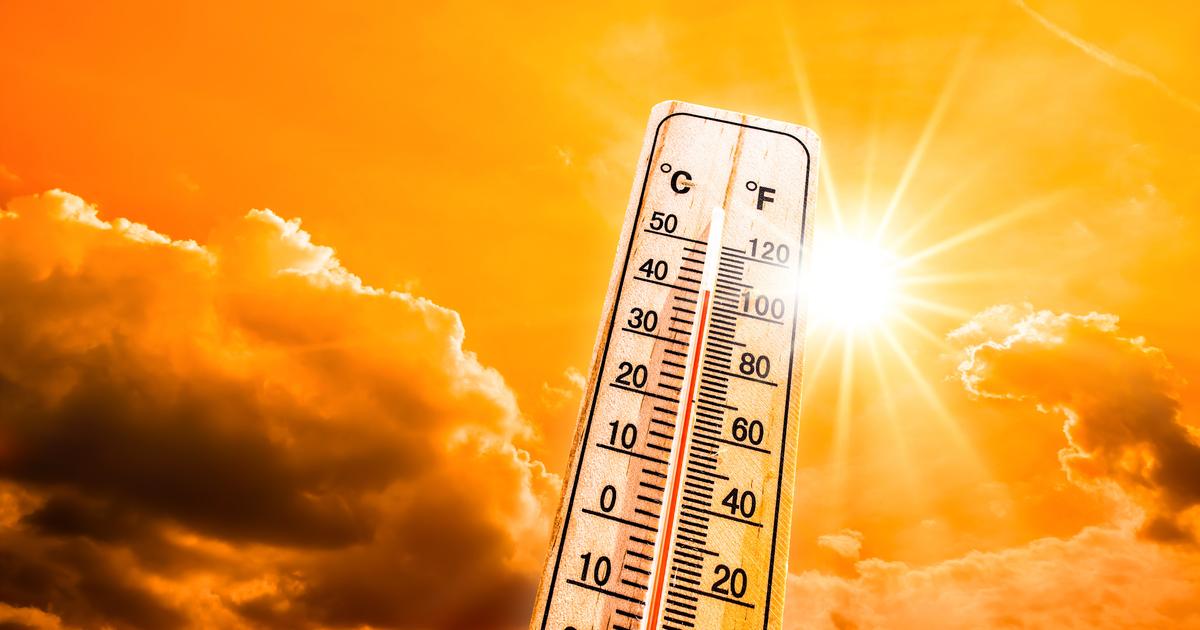Enlarge image
Drought in California: "We are breaking new ground"
Photo: Alison Jones / DanitaDelimont / imago images
46.6, 47.9, 49.5 degrees: the Canadian town of Lytton broke three temperature records in a row last week - on three consecutive days.
The highest value ever measured in Canada was 45 degrees, that was in 1937. Only one day after the latest reports, the place was almost completely destroyed by fire.
Is Lytton's fate a sign of the escalating climate crisis?
According to the findings of a quick study by leading climate scientists, which is available to SPIEGEL, one can certainly read it that way.
The severe heat wave that raged not only in Canada but also in the western United States last week would have been "almost impossible" without the impact of climate change.
This is the result of an analysis by the World Weather Attribution Group, in which 27 researchers from Princeton University, the University of Oxford, ETH Zurich, Columbia University and the German Weather Service were involved.
Two different explanations of how climate change could have increased the likelihood of such a heat wave are therefore plausible.
Several factors could have acted together, including a severe drought that has been smoldering for months, particularly in the western United States, and an unusual atmospheric circulation also known as the "heat dome."
This is a stationary high-pressure system that creates a build-up of heat, in which the heat lies over the region for a longer period of time, similar to a bell.
The high pressure system is significantly influenced by the sluggish jet stream.
In this area, warm tropical and subtropical air accumulates, which sinks towards the ground and warms up even further by compressing the air below.
According to the research, the record temperatures could be explained by a rare combination of climate change and heat dome.
Has the climate system exceeded critical thresholds?
Alternatively, the researchers think a much more worrying explanation is conceivable. Accordingly, it is also plausible that the global climate system has already exceeded non-linear thresholds with an average warming of the earth of plus 1.2 degrees since pre-industrial times. From this point onwards, a slight additional global warming would result in a significant increase in extreme temperatures. This would mean that events like the current heat wave are already more likely than current climate models suggest. The scientists write that this must be examined more closely in further studies.
In the first and probably more plausible case, climate change has made it 150 times more likely that such an extremely rare event will actually occur.
In addition, the current heat wave was around two degrees warmer than would have been expected without the influence of climate change.
The man-made emissions would not only have increased the chance of such extreme weather conditions, but also their intensity.
If global warming continues to increase, by around two degrees compared to pre-industrial times, according to the results of the study, the heat wave would have been another degree hotter, and instead of every 1000 years, as is currently statistically seen, a heat wave of this magnitude could occur every five to ten years .
The researchers emphasize that the new temperature records go well beyond previously measured values, which makes it difficult to really determine exactly how unusual such an event is in the current climatic conditions.
"What we are experiencing here is unprecedented," says Friederike Otto from Oxford University, who was involved in the study.
"This event shows us that we cannot rule out the possibility of experiencing heat extremes today that we would only have expected if global warming had advanced further." According to Otto, it is not normal for temperature records to be exceeded by four or five degrees Celsius.
“Climate change is making extremely rare events like this more frequent.
We are breaking new ground, ”says Sonia Seneviratne from the Institute for Atmospheric and Climate Sciences at the Swiss Federal Institute of Technology in Zurich.
Extreme heat is much more likely under today's conditions
Linking individual weather events directly to climate change is still very difficult.
The human fingerprint can only be read from the trend towards an increase in certain extreme weather conditions and from their increased intensity.
The World Weather Attribution Group tries to close this gap by analyzing the role of man-made CO2 emissions in exceptional weather phenomena.
The team of international scientists uses an established approach that combines observed trends with climate models.
The idea behind it: You calculate how likely the extreme weather was.
To do this, they simulate thousands of times on the computer how often exactly this weather situation would have existed in pre-industrial times and how often today.
The comparison of the results reveals the influence of climate change.
The researchers used this principle to study several heat waves in recent years.
The analyzes came to a similar conclusion: extreme heat is much more likely under today's conditions.
According to the research, climate change increases the risk of heat waves in Europe too.
A study of the record heat in France at the end of June 2019 found that rising global temperatures increase the probability of a hot period by at least five times, and one model even comes to a factor of one hundred.
A global mean global warming of around two degrees would also mean a temperature increase of three to four degrees for most land areas.
This development has serious health consequences not just in the future, but already now: According to model calculations, around a third of all heat-related deaths worldwide between 1991 and 2018 can be traced back to climate change, a research team recently reported in "Nature Climate Change".



/cloudfront-eu-central-1.images.arcpublishing.com/prisa/ARR2O7RSB5GA3PHABH4GHEX5FY.jpg)



